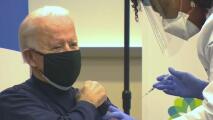How a little boy from Cuba called Delfin became José Fernández, a Major League All Star

When the Miami Marlins ace pitcher died last September in a boating accident, baseball fans mourned the loss of José, or ‘Joseito’ Fernández.
For his family and friends back in Cuba thoughts turned to a mischievous but lovable little boy who they called by his middle name, Delfin.
“JDF 16,” a 46-minute documentary by Univision released on Saturday, tells the story of how little Delfin, who left Santa Clara, Cuba, aged 15, became a charismatic Major League All Star.
He went by his middle name until he reached high school in the United States. Fernández would later adopt the professional acronym JDF16, combining his initials with the number on his team jersey, at high school in Tampa and with the Marlins.
But to his family and friends he remains Delfin, 'Delfy', or 'Delfincito'.
"The Animal"
José Delfin Fernández was born shortly before midnight on July 31, 1992. He weighed 10-and-a-half pounds, recalls his mother, Maritza Gómez. It was not an easy birth.
And it didn't get any easier.
A hyper-active child, before turning five he was already kicking up a storm in his dusty street in the working class barrio La Macuca. By 6 a.m. his mother says he would be outside playing baseball with sticks and stones.
“Any stick he could find was a bat,” she told Univision in an interview for the film. He stole her tights to make a ball with mud and stones, she added.
He had so much energy his family nicknamed him “The Animal.” He wore everyone out, recalls his uncle Osmani Gómez. “He was superhuman … he always said; ‘I’m going to last 120 years.’”
His stone throwing revealed a strong arm at an early age, as well as a good bat swing, neighbors say.
Fernández was encouraged to take up baseball before turning five in an effort by family and friends to channel his boundless energy.
“I assured his mother that he would be Cuba’s best pitcher, and he outdid that,” said Nelson Díaz, his neighbor who introduced him to baseball.
Fernández's father left the family shortly after José Delfin was born. Raised by a devoted single mother and an adoring grandmother, Olga, his short life was influenced by a series of substitute father figures, including several baseball coaches.
He quickly grew into a strapping figure. Like all kids at first he liked to hit and only took up pitching later, recalled his first coach Oscar Castillo.
He was a star for the Cuban national team by the age of nine.
He had a phenomenal arm capable of throwing in the mid-80s by age 11-12, said Noel Guerra, another of his coaches in Cuba who is now a trainer in Italy.
His infectious personality swept up everyone.
That charisma translated to the mound as well, where he earned a reputation as an utterly fearless pitcher who enjoyed nothing more than challenging the other team’s best hitters. “He wasn’t scared like some pitchers,” says Guerra. "That confidence is what made him such a good pitcher. He believed in himself."
Fellow Major League All Star Aledmys Díaz, who grew up on the same street as Fernández and is now the St. Louis Cardinals' shortstop, believes his childhood friend had a special quality. “Baseball wasn’t work for him. It was like he was always having fun playing in the barrio,” adds Díaz.
From Delfin to José
In 2008, Fernández was smuggled out of Cuba by boat with his mother. Three previous attempts had failed, one of which ended with his spending time in jail. Aged only 15, he famously rescued his mother at sea after she fell overboard.
Upon reaching Mexico they made their way to Tampa, where Fernández went to live with his ex-stepfather, Ramon Jimenez, and his partner at the time, Sonia Celpa, who had helped pool the money to get him out of Cuba. Meanwhile his mother lived separately, and found work as a house cleaner.
In the documentary Celpa recalls how Fernández marveled at some of the trivial aspects of his new life, including all-you-eat buffets at local restaurants and free soda refills. "He wasn't used to that growing up in Cuba. He thought they were kidding," she said.
The scale of his new high school also dazzled him, as well as the modern class rooms and the floodlight baseball field with immaculate grass in the outfield.
Fernández quickly became a star pitcher at Braulio Alonso High School in Tampa. In his first year, as a sophomore, he was the winning pitcher in the 2009 Florida state championship final, beating Columbus High from Miami 4-3 in the final.
He was declared ineligible after his junior year by the Florida High School Athletics Association on the basis that he had played one year of high school baseball in Cuba.
With the help of Ralph Fernández (no relation), a prominent Tampa lawyer, he appealed successfully, arguing that he had been jailed in Cuba for trying to escape and was prevented from entering 10th grade.
He would win a second state championship in 2011.
He hand wrote a letter to the member of the FHSAA board to thank them for allowing him to play his final year. "I intend to continue my commitment to excel, on and off the field," he wrote. Then, in strangely prescient words he added; "My baseball career may end sooner than I would hope but I still want to be a productive citizen and an example to others."
The art of baseball
In Tampa he came under the tuition of Orlando Chinea, a legendary Cuban coach, also from Santa Clara, who spent time in Japan where he picked up some unique coaching skills, blending Cuban dedication and hard work with Japanese subtlety. Chinea calls it “the art of teaching a lion to play chess, with the poise of a ballet dancer.”
Chinea described how Fernández was obsessed with increasing his pitch velocity, writing his mounting goals, "94, 95, 96 …. in borrowed lipstick on the mirror in his bedroom, until he hit 99."
Training was so intense Fernández barely had a social life. Instead of high school parties, he stayed home and played dominoes.
“My son’s life was a series of giant steps. He never enjoyed life as other youngsters are able to do,” said his mother. “His childhood was all baseball, baseball, baseball. Then came adolescence, and it was all baseball, baseball, baseball.”
Despite that, Fernández found ways to relax, preserving some of his Cuban habits.
One of his high school teachers recalls Fernández requesting a lunchtime domino table. Despite the skepticism of his teacher, soon there were several tables and students were playing competitions during lunch,” said Frank Diaz, a former teacher at Alonso High.
“Jose had a way of reaching people and getting them to accept his ways. He was an unstoppable force,” said Diaz. “And he always followed through. If he said he was going to have a magnificent game and was going to strike out 14 batters, he would strike out 16. He wasn’t one of those people who are all talk.”
After his death some 3,000 students, parents and teachers attended a homage at the school to Fernández.
He also found time at high school to fall hopelessly in love after meeting Alejandra Baleato, a young Uruguayan teenager, at a mall. They had a lot in common; both immigrants they had arrived in Florida as teens, speaking no English and with tight-knit working class families struggling to make ends meet.
“He was the most romantic boyfriend I ever had, he was a very sweet boy,” she said tearfully. “My parents adored him. He stole everyone's hearts. He left a mark.”
Million dollar pressures
Shortly before graduating high school in 2011, Fernández was signed for $2 million by the Marlins. At just 18, his coach and friends say he was already a polished pitcher ready for the Big Leagues. That is considered a rarity in professional baseball where young talent - "prospects" - are normally carefully groomed over several years in minor league "farm" systems before being thrown into the Major Leagues.
After signing with the Marlins, Fernández's life took on a dual existence, a tug-of-war of sorts, between Delfin, the innocent, happy-go-lucky Cuban boy, and of José, the professional baseball star, with the pressures of a struggling team and the expectations of a close-knit family that lived and breathed his every pitch.
His marriage would not survive the stresses of being on the road in the Marlins Minor League system. Delfin found himself in a new world, with the prospect of enormous riches.
His ex-wife holds no bitterness towards him.
"We were very young, just kids," Baleato said, wiping her eyes. "I didn't fit into his life anymore, which was normal because he had to live his life. He wasn't going to be able to do that with me the way maybe he did without me."
Despite the million dollar pressures of professional baseball, Fernández never lost his youthful exuberance. From the moment he made his debut for the Marlins in 2013 he challenged the old-fashioned code that expects younger players to adopt a low profile, famously flipping his bat to celebrate his first home run.
In the process he earned both the respect of fellow players and the adulation of baseball fans, and not just in Miami. In four seasons interrupted by injury, he would rack up extraordinary numbers, earning Rookie of the Year in 2013.
In April 2014 he became the youngest National League pitcher to make an Opening Day start since the young Mets sensation Dwight Gooden in 1985.
“This infectious young man with the charisma and all the charm that he brings, you just knew it was going to be good for the Marlins, for baseball,” says his former Marlins pitching coach Chuck Hernandez, who wept when he recalled the close relationship they enjoyed.
"He was the most gifted pitcher I've ever worked with in 30-something years of being a coach," said Hernandez, a Tampa native, now coaching the Atlanta Braves.
It was his personality that impressed Hernandez as well. “He hugged more security guards, janitors at Marlins Park than he might have executives … that was his nature. He would hug everybody. And it didn't matter if you were cleaning the clubhouse or you owned the clubhouse. In his world, you were all the same,” he says in the film.
When Fernández was injured in 2014 and had to undergo reconstructive ‘Tommy John’ surgery on his right pitching elbow, he began boating and fishing. It became his favorite pastime.
“The boat was therapy for him,” said his mother, recalling almost daily fishing expeditions.
“He loved to go out in his boat, put some music on, and go for a spin around the bay,” said his uncle Osmani Gómez. “That was what relaxed him.”
Home boy
Unbeknownst to all but his family and close friends, Fernández never turned his back on Cuba and frequently traveled home to see his friends and family, where he would go to cock fights, hit the dance floor, and visit the beach.
“He would come here and have us all dying of laughter,” said Nelson Díaz, his former neighbor. “I’ll always remember that naughty little boy, who never forgot his friends and always came back to visit.”
On those visits he never failed to see his little league coaches either, especially Castillo, who has since quit baseball and now breeds canaries. A large All Star photo of Fernández dominates the small living room in his house. “That poster will always be there, and I look at it all the time,” he says. Whenever I leave or enter my house, he’s right there in front of me.”
Castillo showed Univision photos sent by Fernández soon after he left Cuba in 2008 with affectionate messages written on the reverse side. "From your son who hasn't forgotten you and also who has a lot to thank you for," wrote Fernández. When I am a pitcher in the Big Leagues on TV they're going to know about you because you were the one who discovered me."
Fernández never failed to make it back to Santa Clara for the birthday of his cousin and close confident, Yordan Gómez, every October.
Gómez, who still lives in Cuba, was also a baseball pitcher when he was young, but got injured when he was nine and had to have a kidney removed. “Never mind,” he recalls Fernández telling him. “I’ll pitch for me, and for you.”
Gómez would help Fernández with his training regimen during the visits back to Santa Clara. As Fernández ran the 10-mile circular road around the city each day, Gómez followed behind in a car with bottles of water. “Every afternoon, religiously, without fail,” he said.
"I want to be the best father in the world"
Early in the morning of Sept. 25, 2016, a boat carrying Jose Fernández and two other young men crashed into a rocky jetty at the entrance to the port of Miami. The circumstances of the boating accident remain unclear.
A toxicology report found alcohol and cocaine in his system. But family and friends insist Fernández was vocally anti-drugs. MLB drug tests, including two shortly before he died, had never detected any problem, his lawyer says.
“I don’t know what happened that night,” says a mystified Fernández, the family’s lawyer.
The 24-year-old pitcher was on the brink of a major new contract likely worth as much as $20 million a year. “This was not the moment for him to do something like this,” he said.
His family and friends are still searching for answers. They hope Fernández will be remembered for the way he played, not how he died.
He also leaves behind a baby daughter, Penélope, born earlier this year to Jose’s girlfriend Maria Arias, who was almost three months pregnant at the time of his death.

While the birth of Penélope has brought back some joy to her life, Jose’s mother, Maritza Gómez, continues to mourn her lost son. Each Sunday she takes a moment to visit the scene of his death on South Beach. She sits by the rocks remembering her Big League little boy.
“I ask myself every day, every minute and every second, what happened there,” Gómez told Univision.
”My son never took strangers on his boat. He drove very carefully,” she said. “Nothing fits, nothing. I’m still in shock.”
Fernández was looking forward to being a father and was overjoyed when he found out the baby was a girl shortly before he died.
My son always said, “I want to be the best father in the world,” she said.
“I don’t know where I would be if it wasn’t for [Penélope],” Arias told Univision.
‘“It was really important to him to be a Dad. I think that he looked forward to being everything he never had,” she said.




